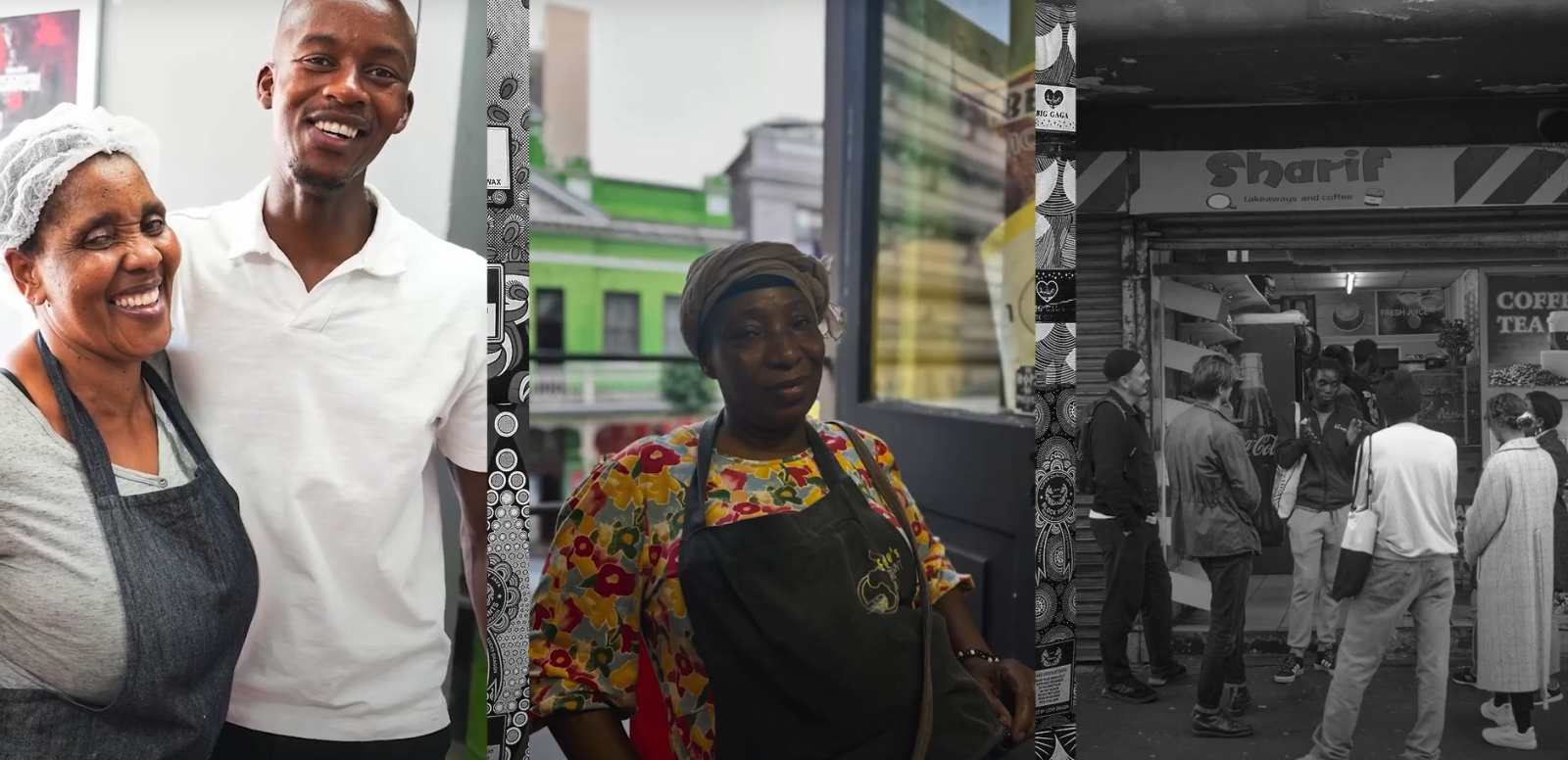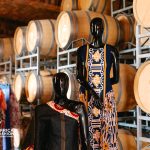- News
Sweet 16! Engen Rocks as SA’s Coolest Petrol Station
October 24, 2025- Entertainment
Carol Ofori: Finding Her Voice, Sharing Her Light
November 13, 2025- Health & Beauty
- Tech
HUAWEI WATCH GT 6 Pro is the best smartwatch to own in 2025
October 23, 2025HUAWEI Pura 80 Series arrives in South Africa
August 6, 2025- Tourism
- News
Sweet 16! Engen Rocks as SA’s Coolest Petrol Station
October 24, 2025- Entertainment
Carol Ofori: Finding Her Voice, Sharing Her Light
November 13, 2025- Health & Beauty
- Tech
HUAWEI WATCH GT 6 Pro is the best smartwatch to own in 2025
October 23, 2025HUAWEI Pura 80 Series arrives in South Africa
August 6, 2025- Tourism
 Home Media Partner Tourism 2.0: How Unexplored Cape Town is Redefining Sustainable Travel Through FoodMedia Partner
Home Media Partner Tourism 2.0: How Unexplored Cape Town is Redefining Sustainable Travel Through FoodMedia PartnerTourism 2.0: How Unexplored Cape Town is Redefining Sustainable Travel Through Food
2 Mins read195South Africa is experiencing a tourism boom, and nowhere is this more visible than in Cape Town. Yet while fine dining and European-influenced establishments dominate the scene, they often come with exclusivity, tourism-driven inflation, and gentrification. For many South Africans, the Cape Town experience is out of reach.
Local heritage food tour company Unexplored Cape Town is responding with Tourism 2.0 – a community-driven, inclusive, and restorative approach that puts heritage, dignity, and sustainability at the heart of travel.
Tourism With Responsibility
“With the current trends in tourism that we are observing in Cape Town and South Africa, tourism cannot be neutral: it has a responsibility. It can either fuel exclusion, or it can become a force for inclusion, dignity, and positive change,” says Dennis Anees Molewa, founder of Unexplored Cape Town.
Cape Town may be celebrated as Africa’s fine dining capital, but behind the glamour lies a city shaped by slavery, gentrification, and inequality. Unexplored Cape Town’s heritage food tours aim to tell these stories honestly – through African food cultures, entrepreneurs, and small businesses.
Food as a Conduit for Storytelling
From a Salt River cooking class to CBD and Bellville walking tours, Unexplored Cape Town uses food to connect people with places and histories. Their latest experience, Two Sides of Cape Town, contrasts the city’s informal food economy with its artisan-driven dining scene, creating space for conversation around urban inequality and resilience.
“Learning about the various cuisines and people, where they came from and how they arrived in my city, was empowering and emotional,” shares Rifqah Van Schalkwyk, a recent participant. “The narrative and approach were beautiful without unnecessary romanticising.”
Why Tourism 2.0 Is Needed
For too long, tourism has been extractive – stripping culture of context, sanitising stories for visitors, and bypassing local communities. In Cape Town, this model widens inequality.
Unexplored Cape Town’s approach is different:
- Revenue circulation: Partnering with POC-owned food businesses, particularly Cape Malay, Creole, and African diaspora entrepreneurs.
- African Food Business Fund: With every booking, 5% is reinvested into local businesses, funding essentials like kitchen equipment.
- Sustainability: Supporting food businesses that prioritise regenerative practices.
“Every plate of food, every story shared, every partnership forged is part of a bigger vision: a tourism model that restores dignity, uplifts communities, and celebrates Cape Town’s diverse culinary heritage from a de-colonial perspective,” says Molewa.
A Heritage-Rich Culinary Journey
Beyond walking tours, Unexplored Cape Town also offers a Cape Malay/African-Creole cooking experience. Guests explore Salt River’s multicultural heritage while shopping at local vendors before learning to prepare a three-course feast rooted in spice traditions and Camisa history.
Booking Details
Unexplored Cape Town invites both locals and international visitors to join their inclusive tours and contribute to building a new model of sustainable travel.
- Website: www.unexplored.co.za
- Tours: CBD, Bellville, Salt River Cooking Experience, Two Sides of Cape Town
- African Food Business Fund: Donations encouraged to support small food businesses

Categories
Recent Posts
Carol Ofori: Finding Her Voice, Sharing Her Light
November 13, 2025South African Fashion Takes Centre Stage at AFI Harvest Table
November 13, 2025Related Articles
Telkom Powers Possibility as Presenting Partner of Classics on Turf
Classics on Turf, the bold South African event series that fuses the...
September 30, 2025Celebrate Heritage Month with Music, Culture and Easy Stays at City Lodge Hotels
Spring is here, bringing with it a vibrant lineup of concerts, festivals,...
September 22, 2025Thrive by WHX Brings Cutting-Edge Health Technology and Expertise to Everyday South Africans
Registration is now live for Thrive by WHX, the flagship wellness, sport...
September 1, 2025WHX Cape Town & WHX Labs 2025: Africa’s Healthcare Future on the Global Stage
From 2–4 September 2025, the Cape Town International Convention Centre (CTICC) will...
August 29, 2025
Subscribe To Our Newsletter
Join our mailing list to receive the latest news on what's trending in the world of travel, beauty, fashion, tech, finances and more.
You have Successfully Subscribed!
- Entertainment
- Entertainment
































